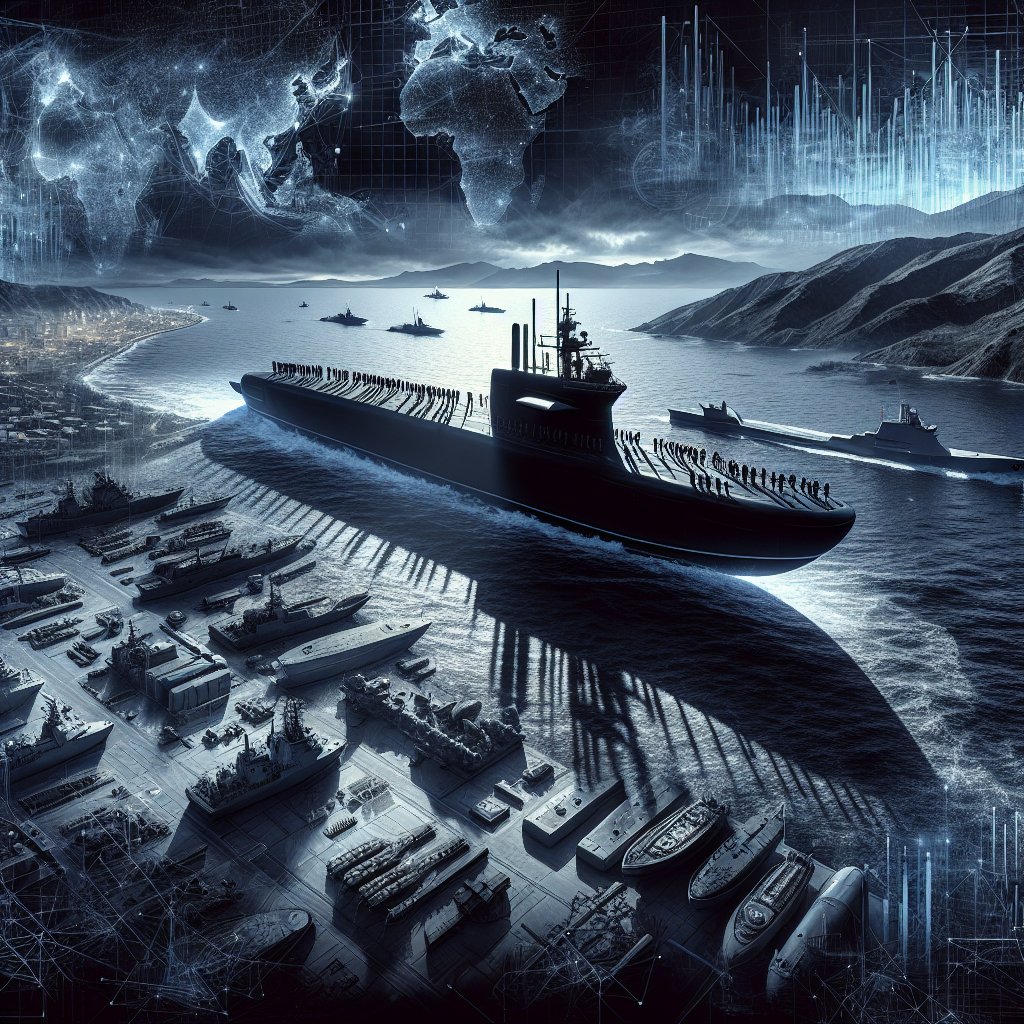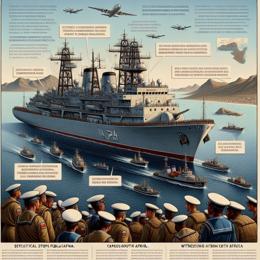Image created by AI
South Africa's Coastal Defense in Jeopardy: The Looming Threat without a Functional Navy
The shadow of vulnerability looms over South Africa’s expansive coastline as the country's naval fleet faces severe deterioration. Kobus Marais, the Democratic Alliance (DA) Shadow Minister of Defense, has voiced pressing concerns about the unpreparedness of the South African Navy—alarms that echo through the words of Vice Admiral Mondo Lobese, the Chief of South Africa’s Navy. The dire state of the navy was highlighted in a recent scathing public statement where Vice Admiral Lobese threatened to cut ties with the primary arms manufacturer, Armscor, citing their failure to repair and maintain the Navy's vessels.
This dramatic pronouncement underscores the challenging situation faced by the South African Navy, which according to Marais, has no operational submarines and only one partially serviceable frigate. The inability to maintain a naval presence threatens not only national security but also South Africa's economic interests and international treaty obligations, given the critical role the Navy plays in safeguarding the country’s exclusive economic zone and the significant maritime routes along its coast.
Marais insists on the importance of rethinking the relationship between the defence sector and state-owned enterprises like Armscor and Denel. These entities, he notes, have been significant contributors to the Navy's deteriorated condition. In stark contrast, private sector companies like Damen Shipyard have demonstrated an ability to deliver ships efficiently and within budget—potentially offering a model for future engagement in defence procurement and maintenance.
The Shadow Minister's remarks point toward a broader systemic issue within South Africa's defence infrastructure. Beyond the sea, airforce capabilities to protect the country's waters are similarly insufficient—amplifying the risk of South Africa becoming a "water wing," a token force lacking in substantive defence capability.
The grim reality of a defence system hampered by outdated technology, insufficient political support, and a lack of concrete action poses a critical challenge that the country must confront. Marais believes that there's an urgency for change which should be expressed by the electorate come May 29, indicating a silver lining through democratic processes.
The Shadow Minister further argues for more profound integration of the local defence industry in the restructuring and repositioning of the Navy. Suggesting that partnerships with South African defence companies can breathe new life into an ailing institution and enhance national security while propelling economic development and job creation.
In the face of such stark realities, the prognosis for South Africa's maritime defence is concerning. Immediate and strategic action, empowered by political will and collaboration with the private sector, is critical to ensure the safety of the country’s borders and the continued vitality of its maritime interests.
#GOOGLE_AD










